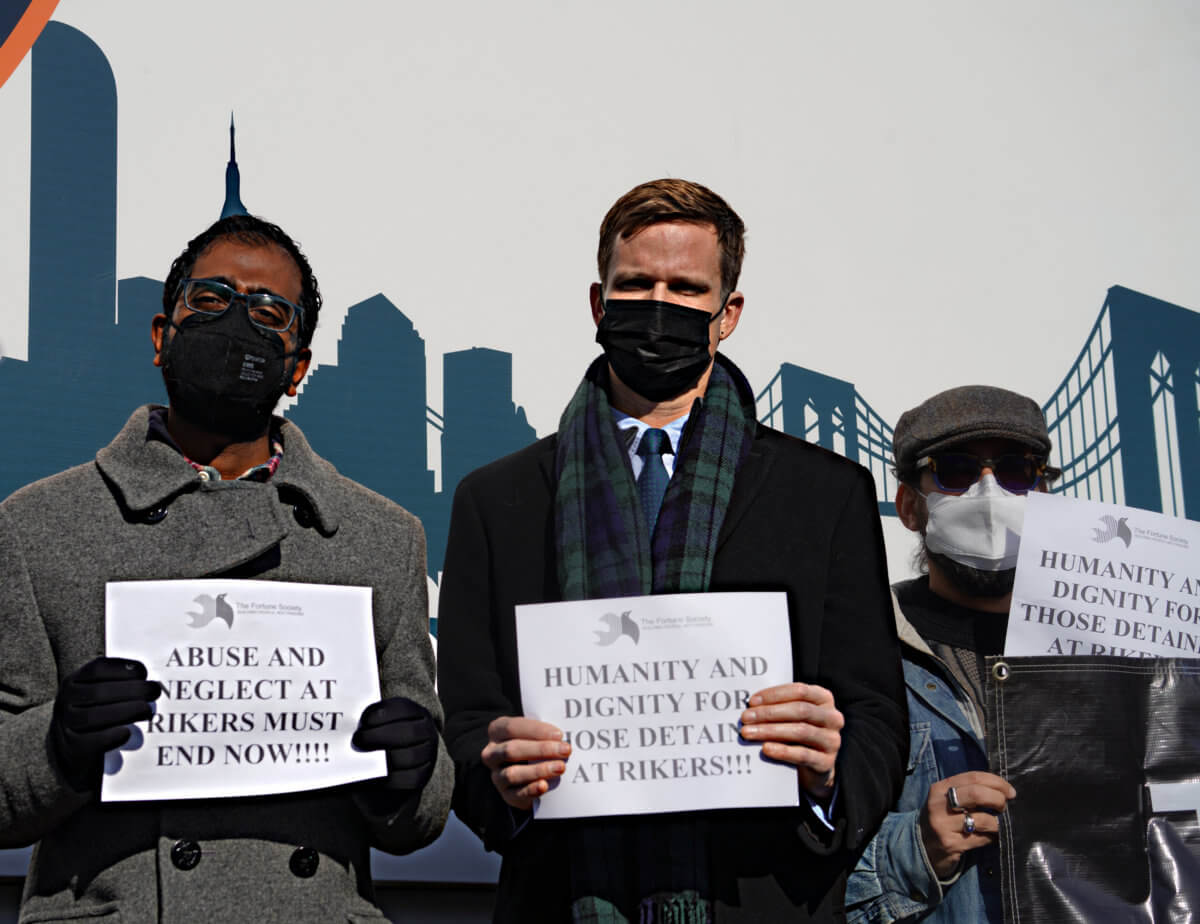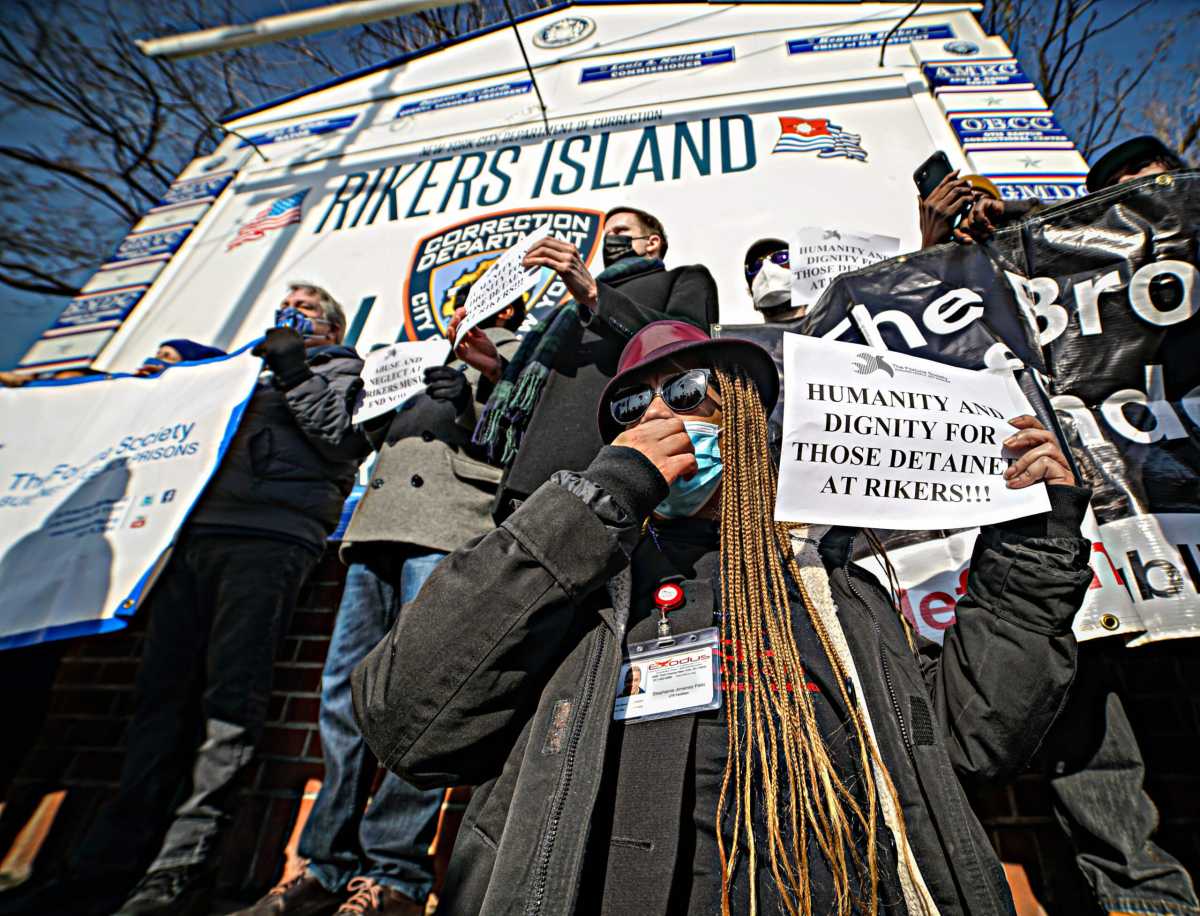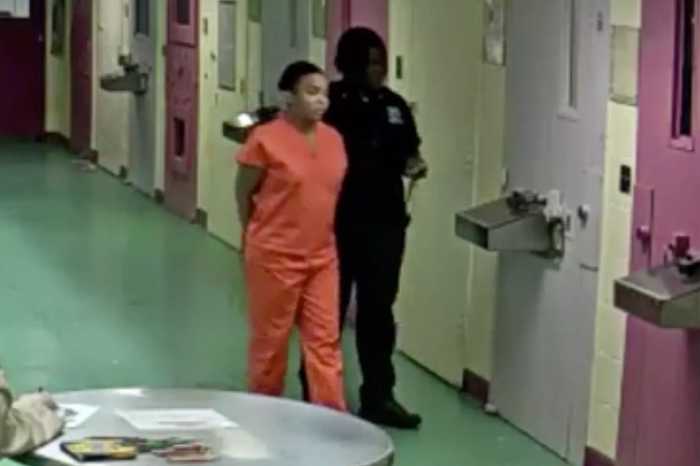Throngs of elected officials and human rights advocates rallied Thursday outside Rikers Island where hundreds of prisoners are reportedly staging a hunger strike.
The conditions inside the penal island have long been decried by advocacy groups, formerly incarcerated individuals, and friends and family members of those still on the inside. Yet, according to Christopher Boyle, an attorney and director of data research and policy for the New York County Defenders Service who also served as a whistle-blower on the hunger strike, prisoners are attempting to protest what are said to be appalling conditions and treatment through non-violent means.
A coalition of protest groups such as The Fortune Society and #HALTsolitary were joined by a host of elected officials beneath the Rikers Island entrance sign on Hazen Street and 19th Avenue in order to demand immediate action by the mayor and the Department of Corrections (DOC) in what they are calling a crisis.
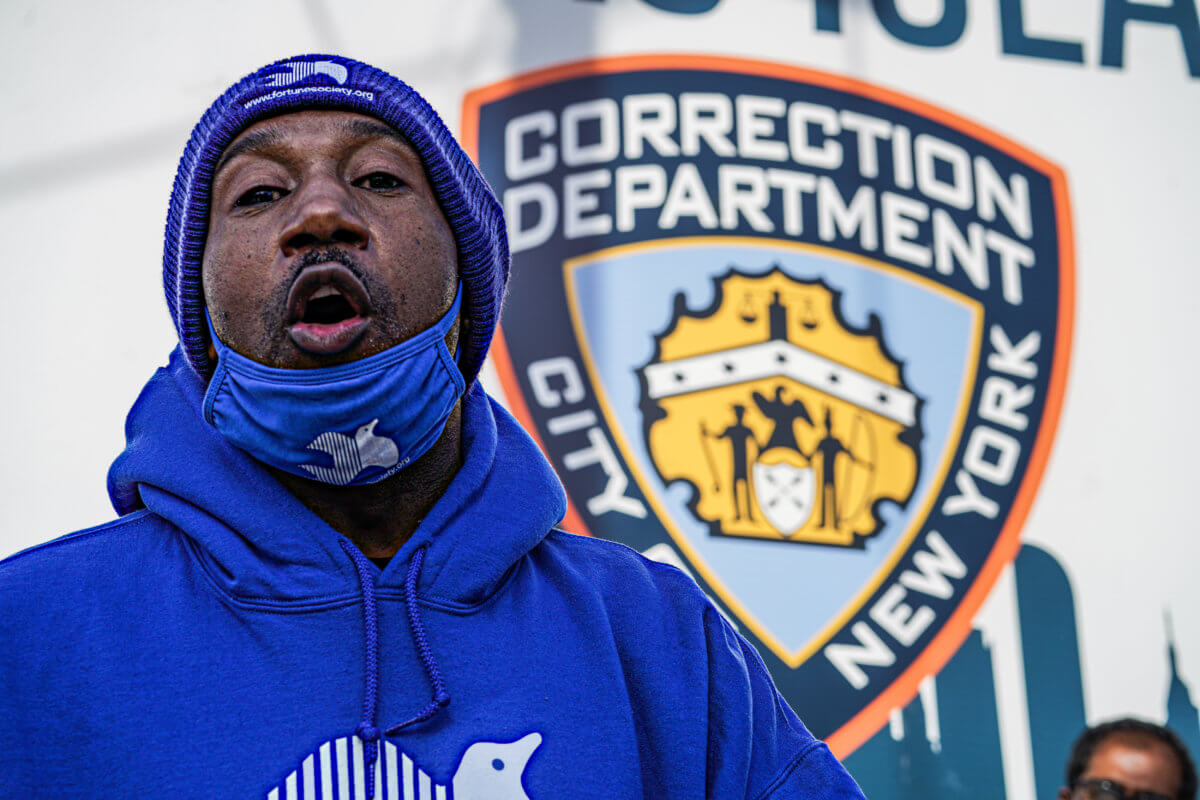
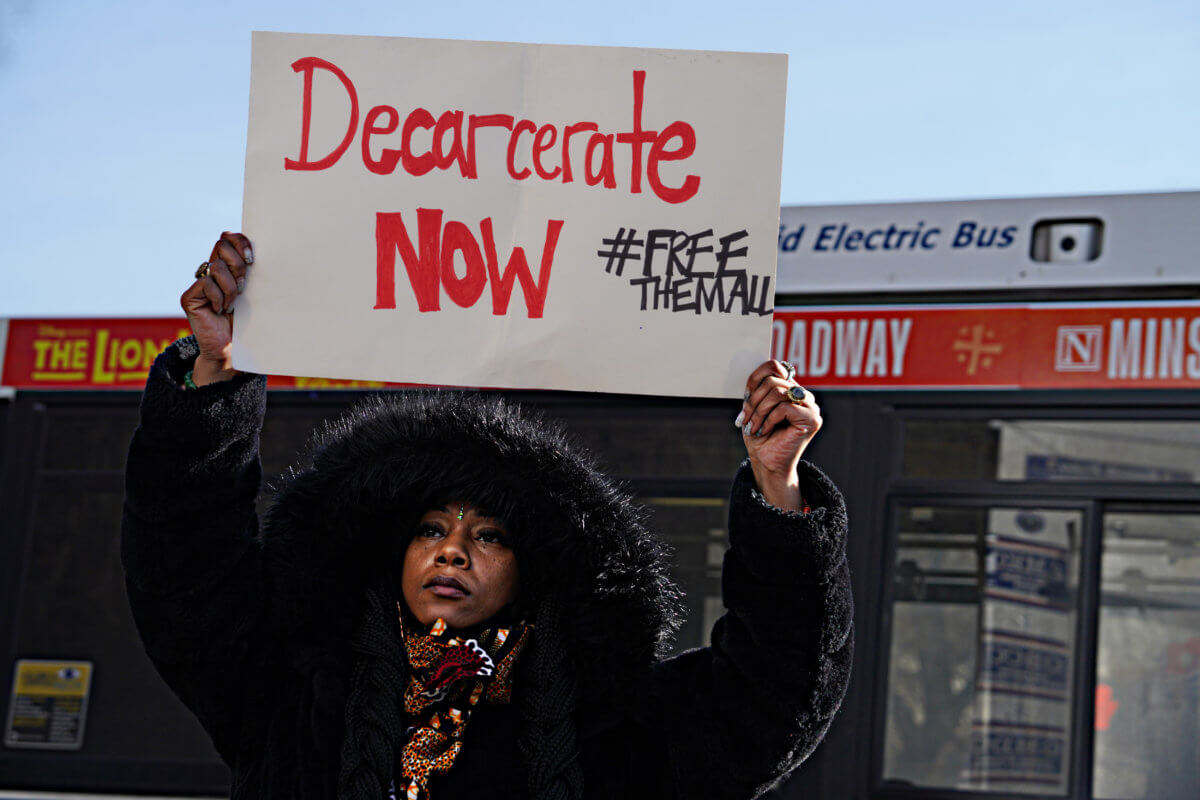
“We’re appealing to those who are in leadership in the mayor’s office, and those who have the capacity to influence change on Rikers, to change the conditions that exist on Rikers Island, because currently, it is a place of inhumanity and a place where trauma and pain is housed,” said Andre Ward, associate vice president of the David Rothenberg Center for Public Policy at the Fortune Society.
Elected officials who have visited the jail are also calling upon the mayor’s office to take action, going as far as to say that the facility should be immediately closed.
“We must end the practice of solitary confinement. It is torture. It has devastated so many, especially our LGBT+ and trans communities in particular. We must shut down Rikers Island now. Shut it down,” Council Member Shekar Krishnan said.
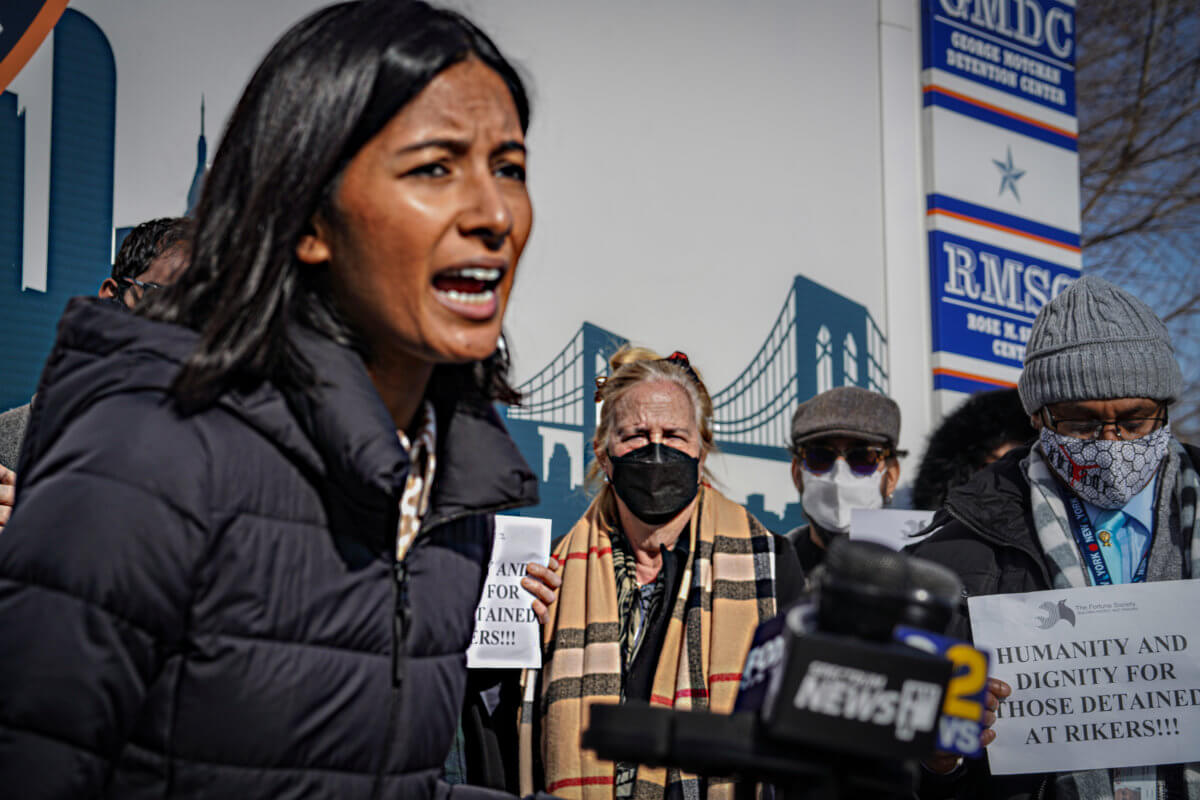
Through voicemails released by Boyle and his office, hunger strikers revealed that they are complaining of scarce medical treatment, no access to the law library services (which hinders due process,) limited items in the commissary, mail is either lost or severely delayed, court days are continuously adjourned, and that prisoners are unable to receive any sort of outside communication in a timely fashion leaving them in limbo.
Yet DOC is denying the hunger strike outright, claiming that reports of a strike are exaggerated and instead prisoners are merely refusing to consume institutional food and instead eating commissary food.
When presented with this rebuke, Boyle told amNewYork Metro that DOC is dancing around the issue.
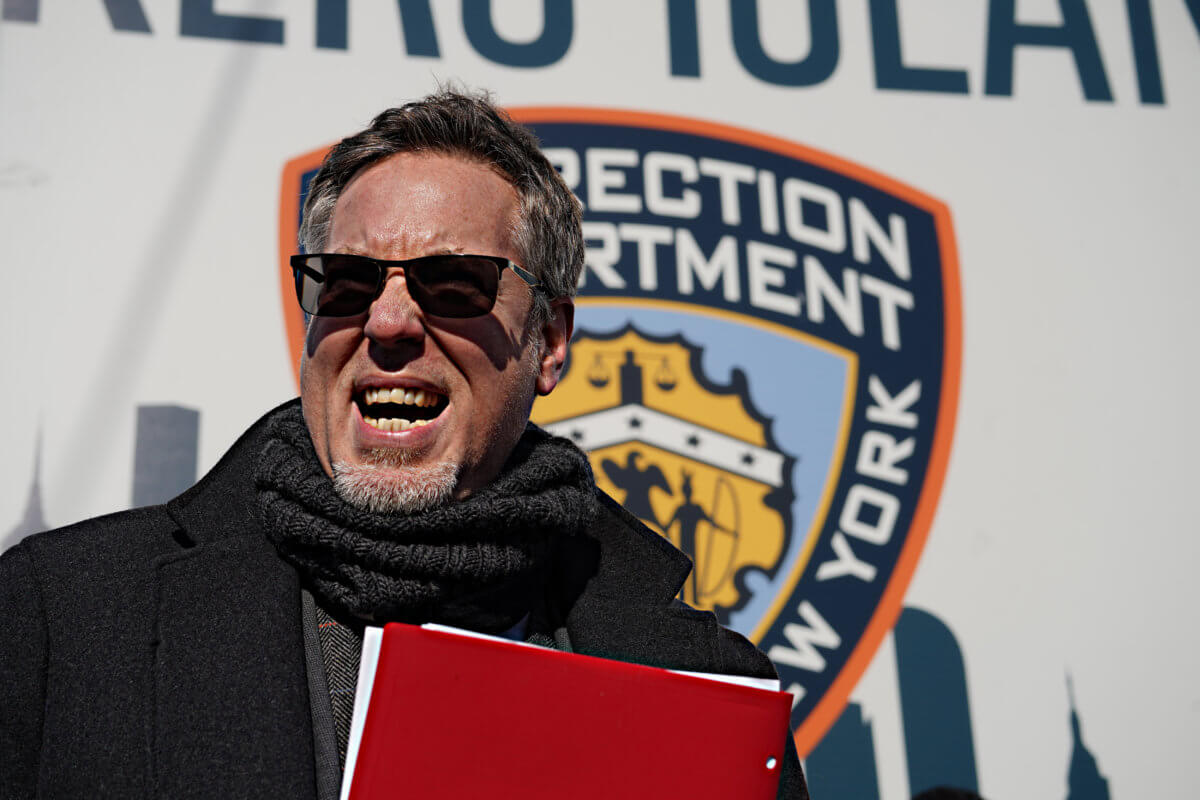
“I have to say that that’s a pretty bad argument. Not one that you’d want to use in front of a jury because basically, they’re saying the hunger strike is going on, and they’re refusing all this food, but they’re getting the chips from the commissary and that’s going to sustain them for this entire time period,” Boyle said. “I mean, I reject that notion that they’re using the commissary because the information that we were getting from other clients from other facilities, because this is one of the complaints, about commissary was number one it was not stocked. They weren’t able to get anything in commissary.”
Boyle charged that many of those serving time do not have the financial means to purchase other food.
Advocates also strove to remind attendees that many of those inside the prison are awaiting trial and have yet to be convicted of a crime, meaning that innocent individuals could also be facing what visitors say are inhumane conditions.
In a statement issued by DOC after the rally, a spokesperson doubled-down on the claim that there was never a hunger strike and that the individuals have resumed eating from the jail’s kitchen.
“There is no ‘hunger strike’ and there never was one. A group of detainees were refusing institutional food while eating commissary meals. The warden engaged with them and they resumed eating from the kitchen two days ago. Our personnel have been working tirelessly to maintain safety and services during both a covid surge and staffing shortages,” the statement read.

